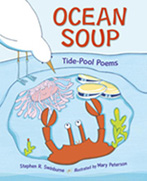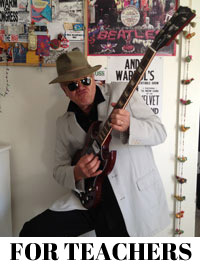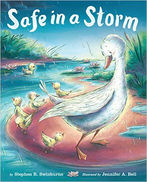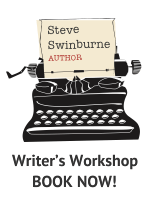Steve Swinburne
Children’s Book Author and School Visits
Making Nonfiction Writing Come Alive
By Stephen Swinburne
Find the Passion
In order to make nonfiction writing come alive, it helps if you're passionate about the subject. I'm passionate about the natural world, so I love researching and writing about nature. Find something that you are really, really interested in and then you'll have an easier time researching and writing about your topic.
Do "Octopus Research"
Like an octopus searching everywhere for food, I have fun and search everywhere for information. Try to dig up really cool facts. Read books and magazines. Check out web sites. Interview experts on the phone. Take field trips. Join an organization. Visit a zoo or museum. Ask your librarian. Become a mini-expert. Act like a sponge and soak up information and then sit down and write.
Write a Great Beginning Sentence
In the first sentence you want to hook the reader. Here are some ways to grab the reader's interest; Begin with a question (Do you know that Emperor penguins live where it's 80 degrees below zero?) Begin with dialogue. ("I feel like a large caterpillar this morning", said George as he tumbled out of bed.) Begin with an interesting fact. (Sloths don't poop in trees!) Begin with an unusual image or picture. (The wind blew so hard it lifted the butterfly high above the ocean waves.) Begin with action. (The pack of wild dogs woke, stretched and set off at a trot to hunt.) Begin in first person. (On an early autumn evening, I sit on a hillside listening for coyotes.)
Show, Don't Tell and Write With Details
Try to write with specific honest information that shows, rather than tells, the reader what is happening. For example, "The wolf looks angry" is a sentence that tells. "The wolf's lips curled revealing its sharp teeth" is a sentence that shows a reader what is happening and shows how angry the wolf is. Put a clearer picture in the reader's mind by using concrete information and replacing general words with specific words. Instead of writing, "Steve likes candy," try "Steve likes M&M peanuts." Instead of writing, "I heard a noise," you might write, "I heard a scream or a squeak or a rattle or a creak or a moan or a phone."
Tell Your Story in Different Ways
There are lots of ways to write your nonfiction story. Try writing a poem. How about a photo essay? You might write an interview, a funny story, a first-person account, a day-in-the-life-of story, a how-to, an historical review. If you're stuck, read something by one of your favorite writers to get your own writing juices going. Have fun. Be creative. Let your imagination go.
Let Your Writing Cool
When you've finished writing, wait a day, and then come back to your story and re-read for spelling mistakes, awkward sentences, etc. How can you make it better? Plan ahead and give yourself time to write just the right story!





